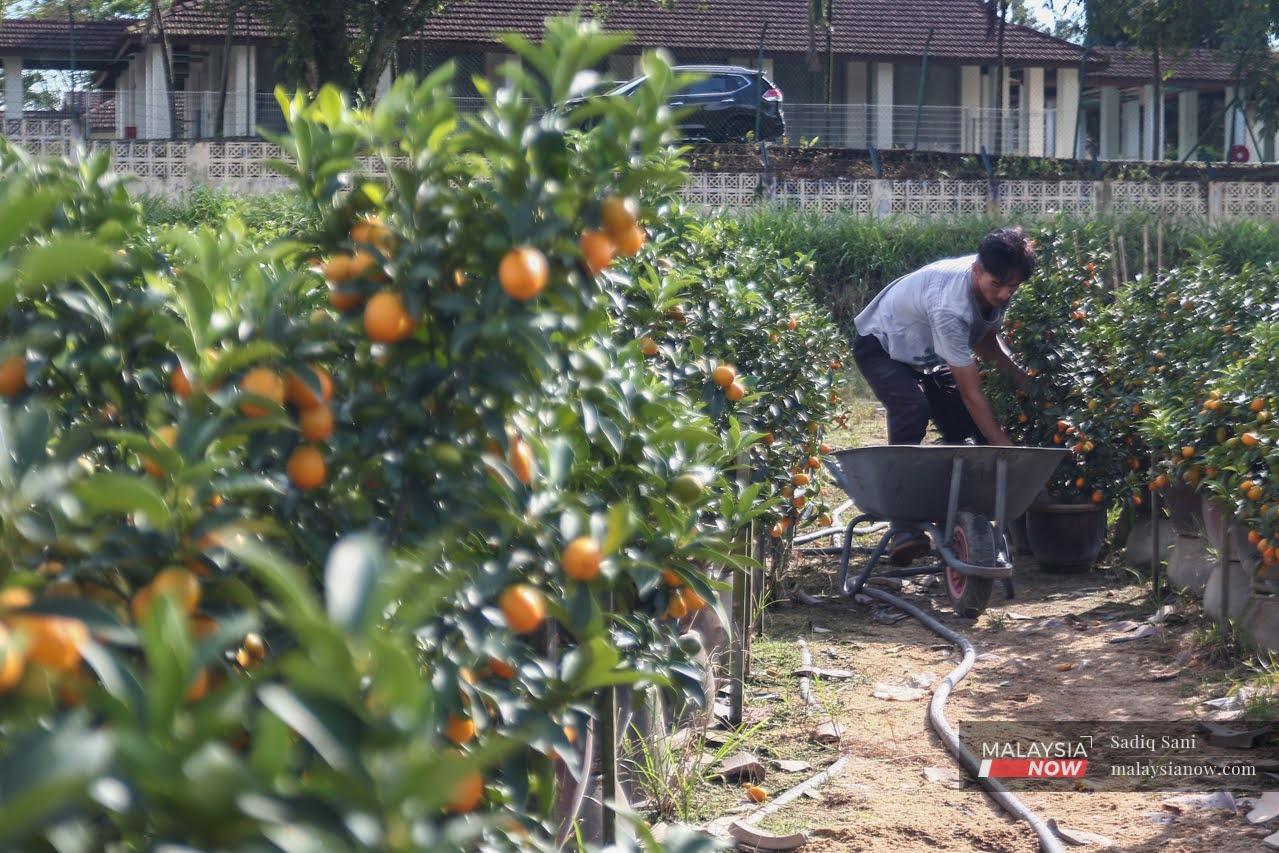Automation could ease labour crunch but Malaysia lagging behind, say experts
While most industries are at least partially automated, there is still room for improvement, they say.
Just In
With many economic sectors in the country still hampered by the labour crunch which began after the onset of Covid-19, questions have arisen over the possibility of automation as an alternative to Malaysia’s long dependence on foreign labour.
Billions of ringgit have been lost so far in the plantations industry alone due to a shortage of harvesters, with similar problems also reported in sectors such as manufacturing, tourism and construction.
But while automation might seem a logical route, experts say implementation is another story.
Amalina Amir of Universiti Teknologi Mara said the country had actually allocated millions of ringgit for automation in collaboration with technology giant Japan.
“But no company that has this technology will transfer it to other companies or nations as these would then become their competitors,” Amalina, who is head of the university’s Innovative Electromobility Research Lab, told MalaysiaNow.
She said the patents for technology and automation processes registered by other parties would present a challenge for Malaysia in its quest to obtain such technology of its own.
The development of artificial intelligence technology for the Industrial Revolution 4.0 also makes it difficult for Malaysia to offer automation systems to global manufacturing companies as it lacks expertise in the field.
The Malaysian Employers Federation (MEF) estimates that most industries are at least 40% automated, based on a survey conducted with the Malaysian Institute of Economic Studies.
Such technology is mostly utilised in operational activities like assembly, inspection and testing, material handling, packaging, process control, machining, information management and warehousing.
But Federation of Malaysian Manufacturers president Soh Thian Lai said the levels of automation would differ from company to company.
“It depends on the nature of the industry and product,” he added.
“Some processes are still more suited to manual operations than being fully automated, for example due to the small volumes produced, or the need for customisation and greater flexibility in handling the different sizes of raw products.”
In such cases, he said, automating these processes might lead to higher costs and a drop in competitiveness.
Nevertheless, Soh added, Malaysia had a lot of room to improve on its automation processes.
This would also increase productivity through consistent quality and higher production rates instead of merely reducing dependence on unskilled or low-skilled labour.
Perhaps the best example of Malaysia’s dependence on such labour is the plantations sector. In terms of palm oil production, Malaysia is the second largest producer in the world, behind Indonesia.
The country’s agriculture also depends heavily on cheap labour.
The Malaysian Palm Oil Board (MPOB) said for now, automation in palm oil plantations was still a new development.
MPOB director-general Ahmad Parveez Ghulam Kadir said much of the technology in this sector was still at the research and development phase.
“Automation in the palm oil processing sector like the mills and refineries is at a more mature stage.
“But there is always room for improvement in line with technological advances,” he added, citing harvesting activities as one example.
“Applications like the use of robotic arms, haptic systems and sensors can be developed and combined with other technologies such as unmanned ground vehicles, drones and so on.
“But the support systems need to be in place to ensure that the automated system can function in an effective manner.”
Ahmad Ibrahim of the Academy of Sciences Malaysia said automation requires a great deal of digital infrastructure like 5G technology.
“We still have problems developing 5G and our broadband prices are among the most expensive in the world,” he said.
“Efforts must be made to further reduce the cost.”
Soh agreed that automation requires large and long-term investments, depending on the resources and capacity of individual firms.
Other necessary components include the know-how, human resources, equipment and data analysis.
“There must be continued support for automation and upgrading activities in all of these areas, particularly for SMEs as they require more effort and investments to increase the automation of plant operations,” he said.
Amalina meanwhile praised the steps taken by the government to provide technical and vocational education and training, saying this would help spur automation in the country.
“Follow what even hi-tech companies have done to improve the quality and efficiency of their production by using KUKA Robotic Corporation as their provider of automated production lines,” she said, referring to the automated solutions firm.
“Malaysia can use similar major companies for manufacturing and save the millions being spent on research and development that is going nowhere.”
Subscribe to our newsletter
To be updated with all the latest news and analyses daily.
